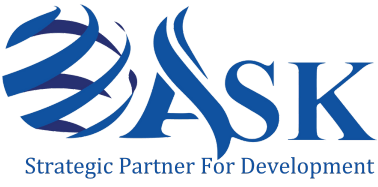In today’s competitive business landscape, organizations are increasingly recognizing the critical role that human resources (HR) play in driving success. A company’s workforce is its greatest asset, and effectively managing and nurturing this asset is essential for long-term growth. This is where human resource services come into play. In this blog post, we will explore the significance of HR services and how they can contribute to creating a thriving workforce.

Human resource services encompass a wide range of activities and support to ensure that organizations are able to recruit, develop, and retain talented employees. These services are typically offered by dedicated HR professionals or HR consulting firms, who have the expertise to handle the complex and ever-changing dynamics of the modern workforce. By leveraging HR services, organizations can enhance their ability to attract and retain top talent, foster employee engagement, and drive overall organizational performance.
Human resource services offer several key advantages to organizations:
1. Talent Acquisition and Recruitment HR services provide support in attracting and selecting the right candidates for job openings. From designing effective recruitment strategies and conducting interviews to assessing candidate qualifications and facilitating the onboarding process, HR professionals ensure that organizations are able to build a team of skilled individuals who align with the company’s values and goals.
2. Employee Development and Training Investing in the development and training of employees is crucial for their career growth and the overall success of the organization. HR services help design effective training programs, identify skill gaps, and provide learning opportunities to enhance employees’ capabilities. By nurturing employee development, organizations can improve employee engagement, job satisfaction, and retention.
Nurturing a Thriving Workforce
Human resource services play a vital role in creating a thriving workforce:
1. Performance Management and Rewards HR services assist in setting clear performance goals and establishing effective performance management systems. This includes regular performance evaluations, feedback sessions, and recognition programs. By focusing on performance management and rewards, organizations can motivate their employees, align individual goals with organizational objectives, and foster a high-performance culture.
2. Employee Relations and Well-being Maintaining positive employee relations and ensuring employee well-being is essential for a harmonious and productive work environment. HR services provide guidance on employee relations issues, conflict resolution, and policies related to work-life balance, health, and safety. Additionally, HR professionals can offer support programs to address mental health and work-related stress, contributing to a healthier and happier workforce.
Nurturing a thriving workforce is a key priority for organizations aiming for sustained growth and success. Human resource services offer the expertise, support, and resources needed to effectively manage and develop employees. By investing in HR services, organizations can attract top talent, develop their workforce, promote employee engagement, and create a positive work environment. Ultimately, when organizations prioritize their human resources, they unlock the true potential of their greatest asset – their employees.

